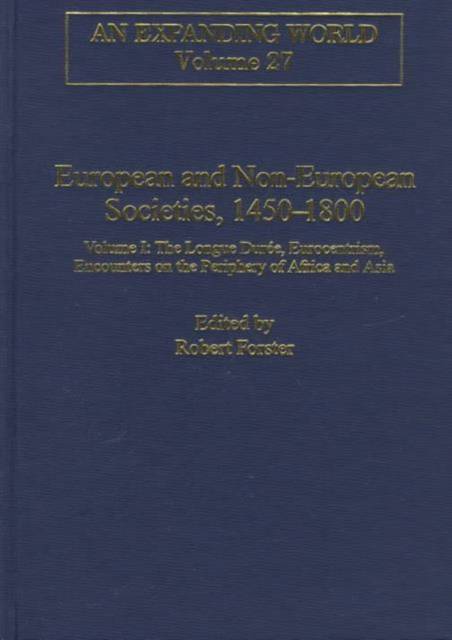
- Afhalen na 1 uur in een winkel met voorraad
- Gratis thuislevering in België vanaf € 30
- Ruim aanbod met 7 miljoen producten
- Afhalen na 1 uur in een winkel met voorraad
- Gratis thuislevering in België vanaf € 30
- Ruim aanbod met 7 miljoen producten
Zoeken
European and Non-European Societies, 1450-1800
Volume I: The Longue Durée, Eurocentrism, Encounters on the Periphery of Africa and Asia
€ 763,45
+ 1526 punten
Omschrijving
The process of European expansion brought into contact across the world societies and cultures initially alien to one another. Conflict, and violent conflict, was one aspect of this interaction, but accommodation, mutual adaptation, and institutional and behavioural synthesis were also present though often biased in favour of European norms. The intent of this book is to avoid treating 'colonization', 'dominance' and exploitation' as the only focuses of attention. In the first volume Robert Forster explores issues of formative influences, the impact of Eurocentrism on historiography and the reaction against it, and the differing approaches and perceptions of the Europeans, notably the Spanish, French and English. In this period he distinguishes three modes of interaction: that of the trading empires, generally in Africa and Asia, where the European control of the encounter was slighter; and those of the regions of settlement, as in North America, and of exploitation, typified by the Caribbean, where the European impact was profound. The second volume focuses on the Americas, and uses the topics of religion, class, gender, and race as its points of entry.
Specificaties
Betrokkenen
- Uitgeverij:
Inhoud
- Aantal bladzijden:
- 786
- Taal:
- Engels
- Reeks:
Eigenschappen
- Productcode (EAN):
- 9780860785217
- Verschijningsdatum:
- 11/12/1997
- Uitvoering:
- Hardcover
- Formaat:
- Genaaid
- Gewicht:
- 4529 g

Alleen bij Standaard Boekhandel
+ 1526 punten op je klantenkaart van Standaard Boekhandel
Beoordelingen
We publiceren alleen reviews die voldoen aan de voorwaarden voor reviews. Bekijk onze voorwaarden voor reviews.










